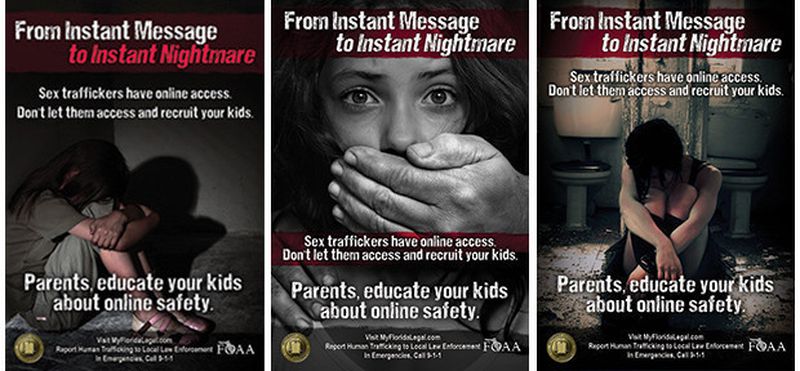Too many people still believe human trafficking exists in faraway places, on the other side of the world, in communities that look very different than their own. In actuality, this scourge is spreading in our own backyards. Men, women and children are being sold for sex, servitude and forced labor in every single community, in every state — but especially ours. Florida is consistently ranked third in the nation for human trafficking, with a per capita rate behind only Mississippi and Nevada. And South Florida is at the top of the charts for trafficking in the state.
And South Florida is at the top of the charts for trafficking in the state.
Prevention and eradication begin with education. Thanks to a newly implemented state law mandating developmentally appropriate human trafficking prevention lessons for children in grades K-12, we’re finding and focusing on ways to turn awareness into action — ensuring the next generation is equipped to combat this modern-day slavery.
Students today are learning information we should all be made aware of, including the following signs someone may be a victim of trafficking, from the National Human Trafficking Hotline:
- Receiving gifts or money from a new boyfriend/girlfriend or otherwise becoming involved in an overwhelming, fast-moving and asymmetric (e.g., large difference in age or financial status) romantic relationship;
- Frequently running away and/or staying with someone who is not their parent or guardian;
- Developing a relationship that seems too close with someone they know solely on social media;
- Displaying signs of physical or sexual abuse (bruising, wearing clothing inappropriate for the weather, regressive behavior, sudden changes in behavior and/or mood);
- Being offered a job opportunity that seems too good to be true;
- A would-be employer refusing to give workers a signed contract or asking them to sign a contract in a language they can’t read;
- A would-be employer collecting fees from a potential worker for the “opportunity” to work in a particular job;
- A family member, friend or co-worker being recruited for an opportunity that requires them to move far away, but their recruiter or prospective employer avoids answering their questions or is reluctant to provide detailed information about the job.
As a member of the Statewide Human Trafficking Task Force and an architect of legislation — now Florida law — that requires law enforcement officers, medical professionals and hospitality workers be trained in how to recognize traffickers and victims, I understand all too well that each one of us has a role to play in the fight against human trafficking. It starts with providing accurate information to children and adults and understanding that anyone can become a victim — just as anyone could be a predator.
Traffickers and child predators are smart — but together, we can be smarter.

